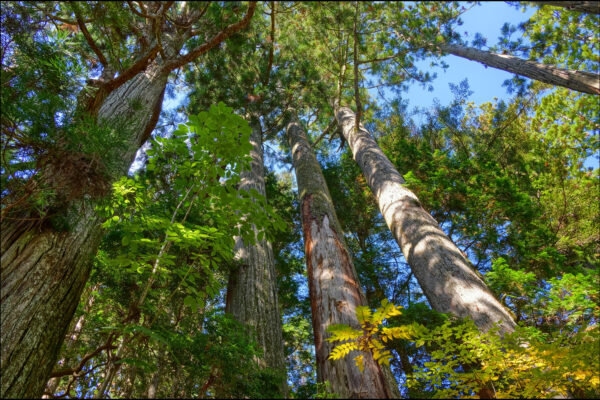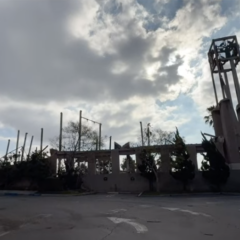CRCC has been collecting the stories of 100 “spiritual exemplars,” people inspired by their faith to work on some of the world’s most intractable issues since 2019. What we did not expect at the start of the project was how central the issue of climate change would be for spiritually engaged humanitarians and how varied and nuanced their work would be on the issue.
As the UN Climate Change Conference (COP26) takes place in Glasgow, Scotland, we want to highlight some of the ways that exemplary people of various faiths are working for climate justice—prioritizing those who are bearing the brunt of the effects of a warming global climate.
There is no time to wait. Unfortunately, there are too many people suffering from the environmental crisis. Urgent and courageous action is needed along with the responsible preparation of a future in which humanity will be capable of taking care of itself and nature. #COP26
— Pope Francis (@Pontifex) November 2, 2021
One religious group is on the inside at COP26: The monastics at Plum Village are bringing Thich Nhat Hanh’s teachings on interbeing and deep listening to the delegates.
Plum Village monks Brother Phap Dung and Brother Phap Linh @brspirituality are at #COP26 offering their presence and spiritual support, with panel sharings, mindful steps, deep listening, and daily 8am meditations under the “globe” pic.twitter.com/u5BK0DWEPO
— Plum Village (@PlumVillage) November 3, 2021
The monks were first invited to the global climate talks in Paris by Christiana Figueres, then-lead diplomat and a student of Thich Nhat Hanh. Brother Pháp Dung, pictured above at COP26, shared with the project how mindfulness can create a revolutionary path for living simply, in alignment with nature and each other. You can also listen to Sister True Dedication and Brother Phap Huu discuss Thich Nhat Hanh’s teachings on environmentalism in a recent podcast episode.
Though she is not in attendance at the meeting, Secretary General of Religion of Peace Azza Karam (profiled here) kicked off a discussion called “Making Peace with Nature Heeding the Call of Indigenous Peoples,” available on the UN COP26 YouTube channel. She described how the Interfaith Rainforest Initiative had succeeded in getting 900 senior religious leaders from 125 countries to endorse the Faiths for Forests declaration and action agenda, which seeks to end deforestation and protect the rights of Indigenous peoples.
“When indigenous people seek to protect their land, they are not doing it just for themselves…they are doing it for the world,” Karam said. Therefore, she added, we owe it to them to ensure our religious institutions are collaborating for the good of all.
.@religions4peace .@Mansoura1968 -while political leaders do public relations in front and behind cameras,some faith leaders continue part of their actual work: serve as moral voices for shared justice and survival. No cameras here. https://t.co/rC1r24p0pC
— Azza Karam (@Mansoura1968) November 6, 2021
Others profiled in CRCC’s project are also working on deforestation. Tuenjai Deetes, a Buddhist in Thailand, has been working with Indigenous communities for decades to protect their rights and the forests.
Fachruddin Mangunjaya is trying to protect Indonesia’s forests working with Muslim clerics and schools. Indonesia has been criticized during COP26 for pulling out of a pledge to end deforestation by 2030.
Climate change is real as the deforestation and the lost of balance #almizan happen, but our arrogance and greedy attitude ignored reality until they them selves tested the disasters. This is flood happen in #BatuMalang East Java yesterday amid #COP26 @UNEPFaith4Earth pic.twitter.com/2pDalzHoLK
— FachruddinMangunjaya (@FachruddinM) November 5, 2021
Our project has also profiled numerous people from Indigenous communities who are working to protect their land from exploitation while also preserving their culture. In the Philippines, Sapi Bawer helped prevent the Kalinga’s mountainous surroundings from being dammed. Soni Sori has faced imprisonment and death threats for protecting her people and their lands in Central India.
The Gwich’in nation in Alaska aren’t letting up their fight to prevent oil exploration in the Arctic National Wildlife Refuge. Echoing Karam’s statement at COP26, elder Sarah James says it’s about survival: “And that’s not only for me or my history, that goes for everybody.”
Forthcoming pieces will explore native Hawaiian activists reconnecting with their land and ancestors, and water protectors’ fight against oil pipelines across the Upper Midwest.
Just as Karam recognizes the important role of collaboration, CRCC journalist fellow, Mary Annette Pember, a member of the Red Cliff Band of Wisconsin Ojibwe tribe, has challenged our project’s focus on individuals taking action instead of communities. Indeed, following the lead of Indigenous peoples in responding to climate change will require all of us and especially our global leaders to think and act communally rather than individually.
Yet even though the UN has noted the importance of following the lead of Indigenous peoples on climate change, Pember recently wrote for Indian Country Today, their voices are largely absent from COP26.
If the voices of indigenous activists in Glasgow were heeded, the conversation would be about ending our reliance on fossil fuels and keeping oil in the ground, rather than pledging to reach “net zero” emissions by 2050. Here is Tom Goldtooth, one leader Pember interviewed for her above piece, on this issue:
The U.S. must immediately declare a climate emergency and stop fossil fuel expansion. We reject the framework of “Net Zero”. Frontline communities including those in “sacrifice zones” will bear the disproportionate burden of continued pollution. #COP26 #FrontlineSolutionaries pic.twitter.com/YCLpcQgSR4
— Indigenous Environmental Network (@IENearth) November 7, 2021
Work by the Spiritual Exemplars Project team has shown the rich landscape of opportunity for moving past the marginalization of Indigenous perspectives and toward a more hopeful strategy of aligning Indigienous voices with the chorus of faith- and spirit-based activists who are articulating ecological values within their own traditions.
Perhaps the strongest showing from faith-motivated actors during COP26 was over the weekend, when tens of thousands marched in the streets for climate justice. Of note, the Islamic Foundation for Ecology and Environmental Science (IFEES), founded by Islamic environmentalist Fazlun Khalid (profiled here), helped Muslims throughout Great Britain unite around climate action.
#GlobalDayofAction Our volunteers and #Ummah4Earth coalition partners were out in force today campaigning for #ClimateJustice in Scotland, England and Wales. pic.twitter.com/vIneraoLns
— EcoIslam (@EcoIslam_IFEES) November 6, 2021
While CRCC’s work is still ongoing, it is clear that faith-motivated actors are playing critical and multi-faceted roles in climate-related action. Not only do they provide long-standing examples of ecologically-minded spirituality, they are also on the front lines of climate-related disaster response. Spiritually inspired actors are helping populations learn how to live through climate change. Moreover, they are responding to generations dealing with eco-anxiety in novel and innovative ways. We look forward to highlighting and unearthing more of these trends as the project proceeds.
Feature image credit: Geoff Whalan / Flickr / Creative Commons




